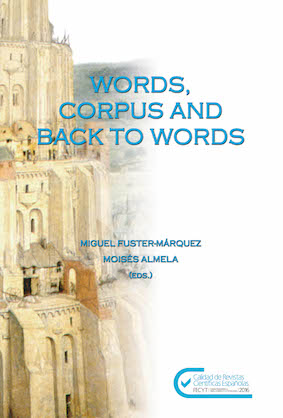Corpus analysis of phraseology in an A1 level textbook of German as a foreign language
DOI:
https://doi.org/10.7203/qf.22.11298Keywords:
corpus, phraseology, German as a foreign language, Common European Framework of Reference for Languages, A1 level Abstract
Abstract
This paper aims to analyse the extent to which the textbook for German as a foreign language DaF kompakt A1 (Sander et al., 2011) complies with the recommendations of the Common European Framework of Reference for Languages (Council of Europe, 2001) (hereafter CEFR) in respect to lexical competence and sociolinguistic competence in receptive and productive activities, specifically with regard to phraseological units. In this respect, we have focused on sentential formulae and fixed frames present in a corpus containing the textbook materials, and we have checked whether those fixed expressions correspond to the phraseological and sociolinguistic compe-tences that are expected in the Framework for an A1 level student of German language. To this end, we have compiled a corpus of the textbook receptive and productive materials, made up by three subcorpora: one for the written texts, one for the oral texts, and a third subcorpus containing exercises. We have performed a quantitative analysis (by means of AntConc 3.4.4 [Anthony, 2016] and kfNgram [Fletcher, 2007]), and a qualitative one. Our results suggest that the textbook complies with the recommendations of the CEFR.
 Downloads
Downloads
Downloads
Published
How to Cite
-
Abstract1025
-
PDF386
-
PDF (Español)315
-
PDF (Català)143
Issue
Section
License
 Este obra está bajo una licencia de Creative Commons Reconocimiento-NoComercial-SinObraDerivada 4.0 Internacional.
Este obra está bajo una licencia de Creative Commons Reconocimiento-NoComercial-SinObraDerivada 4.0 Internacional.
Authors who publish with this journal agree to the following terms:
- Authors retain copyright and grant the journal right of first publication with the work simultaneously licensed under a Creative Commons Attribution License that allows others to share the work with an acknowledgement of the work's authorship and initial publication in this journal.
- Authors are able to enter into separate, additional contractual arrangements for the non-exclusive distribution of the journal's published version of the work (e.g., post it to an institutional repository or publish it in a book), with an acknowledgement of its initial publication in this journal.
- Authors are permitted and encouraged to post their work online (e.g., in institutional repositories or on their website) prior to and during the submission process, as it can lead to productive exchanges, as well as earlier and greater citation of published work (See The Effect of Open Access).



